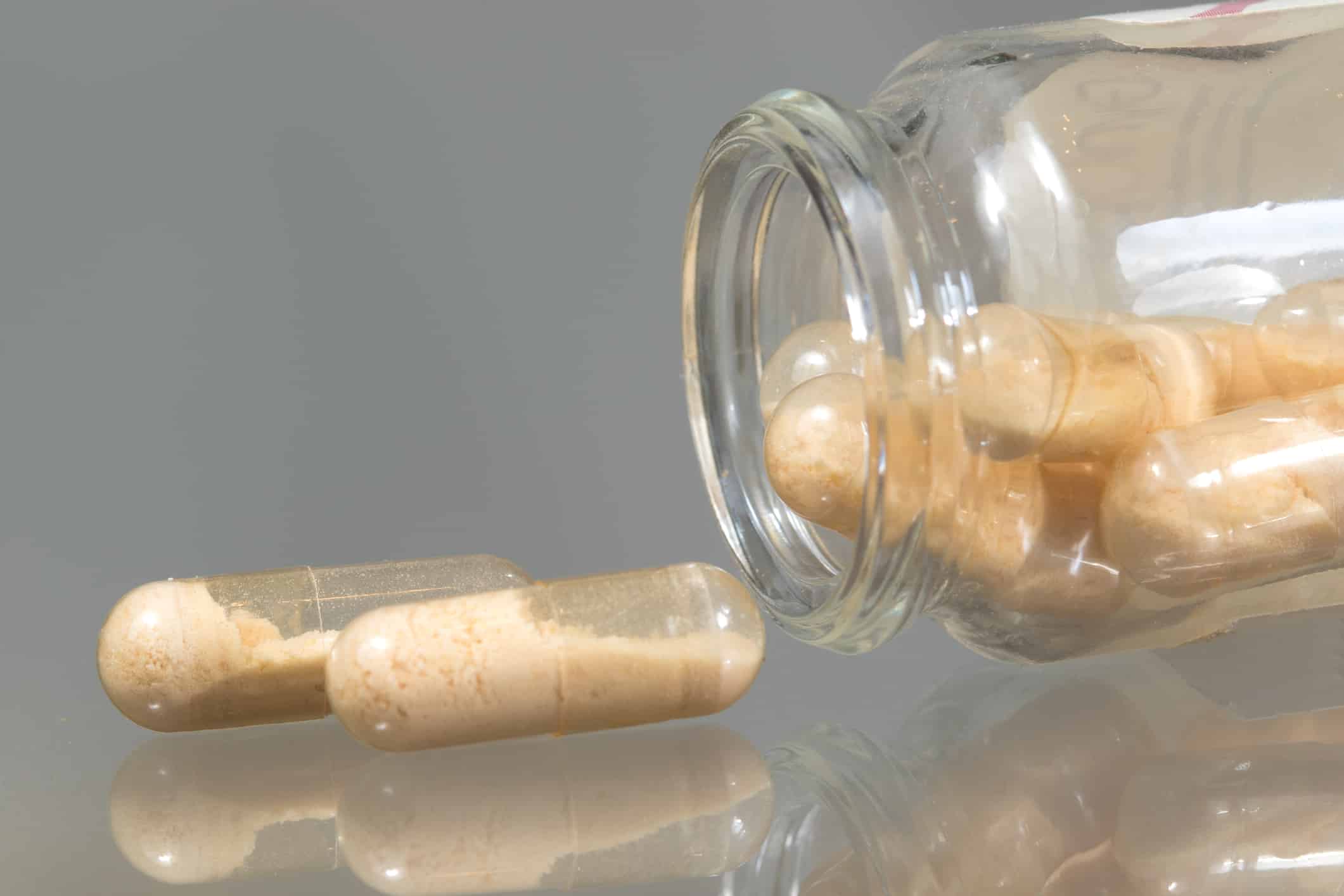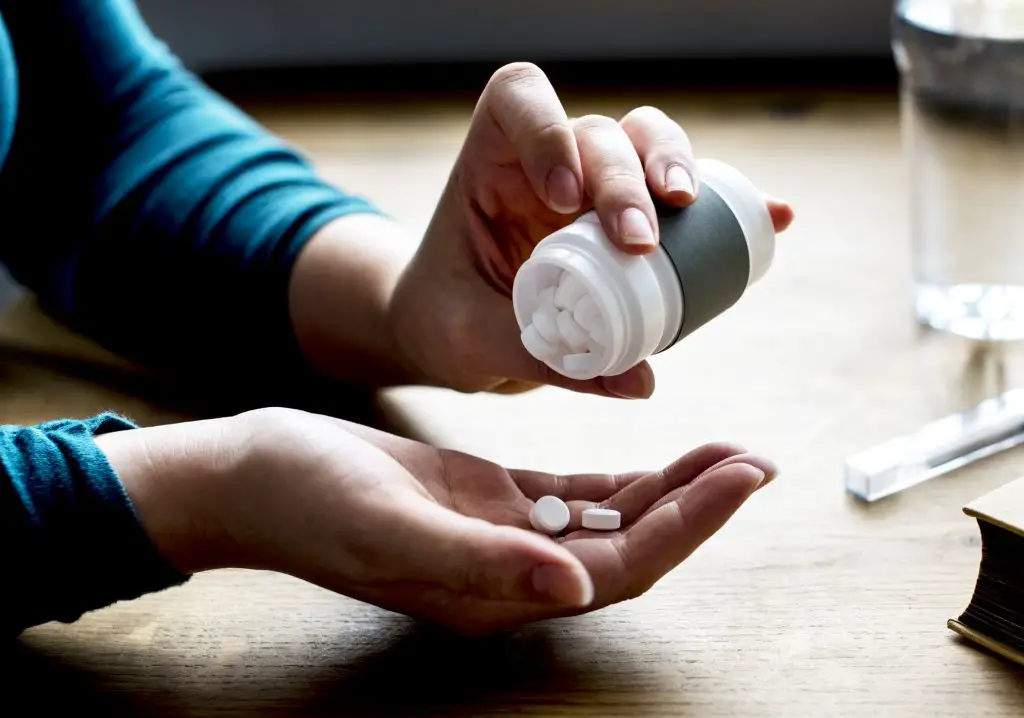How Do I Know My Probiotic is Working Well?

As an affiliate, we may earn a commission from qualifying purchases. We get commissions for purchases made through links on this website from Amazon and other third parties.
Many people are not aware of how to know if their probiotic is working well or not.
A good way that can be determined by the individual would be noticing a change in bowel movements, as well as an improvement or lessening of any symptoms they were experiencing beforehand with digestive issues and more!
A lot goes into knowing whether or not your natural gut health supplement is effective- it’s definitely worth seeing these changes for yourself.
For instance, did you notice anything about your stool before taking this? Did things improve after starting on the product?
Do you know if your probiotic is working? You may be wondering why it feels like you are not getting the same benefits from your probiotic as other people.
This is actually a common question and here are some tips on how to know if your probiotic is working.
Start by assessing your symptoms. If you are not noticing any change, then the probiotic may not be giving enough benefits for you or it may not be the right probiotic for you.
However, if you still have symptoms or had a die-off reaction, then it’s possible that your probiotic is working well for you.
How to know if your probiotic is working well
When it comes to taking care of your gut, it can be tough to determine whether or not your current course of action is enough.
Fortunately, you have an incredible tool: Your poop!
Your stool will give you all of the information that you need to know about how well your gut is functioning. The texture, frequency, and even color can tell you how your gut bacteria are doing.
It also provides clues about what changes you might need to make in order to get yourself back on track.
So, if you’re wondering how to know if your probiotic is working, take some time during your day to check out where things stand with these points.
Remember, checking them more than once is always good for peace of mind – especially if something isn’t looking right.
- Stool Texture
- Stool Frequency
- Stool Colour
1) Stool Texture: You should expect to see normal stools that fall somewhere between soft and hard. If you notice your stools are consistently coming out wetter than usual or abnormally hard, you may want to try adding an additional source of soluble fiber into your diet.
This includes foods like vegetables, fruits, oats, barley/barley flour (in moderation), canned pumpkin puree, pears (dried or fresh), canned peaches in a heavy syrup, etc.
2) Stool Frequency: For adults, stooling three times per day is considered optimal. Going less often means that not everything you eat has been processed properly which means toxins could start building up in your body and eating away at your health.
Conversely, going more often could mean there’s too much liquid content being eliminated from your body before it gets processed properly which also leads to toxic build-up so something’s got to give there.
The best thing to do when faced with irregularity would be to cut back on certain foods like high-fiber legumes while increasing other sources of nutrition like meaty proteins or other sources of soluble fibers so that stool remains within an acceptable range without going too hard or too runny.
3) Stool Colour: White, tan, brownish, or greenish stools are all safe and healthy. However, black stools usually indicate bleeding ulcers or underlying hemorrhoids. Bloody diarrhea is also a cause for concern.
How to know if your probiotic needs a boost
It’s normal to have periods of feeling good and bad. This doesn’t mean your probiotic isn’t working. You might not see an improvement right away because it takes time for your gut bacteria to adjust and grow.
The good news is that there are some simple tests you can take to check if your body needs more probiotics, like checking if your stools are any different or seeing if you feel better.
The only problem with these methods is that they rely on people accurately reporting how they’re feeling – which is hard enough on its own, let alone when you’re also trying to figure out if your probiotic has been successful.
There is actually one very reliable indicator though – in fact, it’s often called ‘the gold standard in understanding whether or not someone has had enough of their beneficial bugs.

What to do when your probiotic isn’t working
Probiotics are living organisms, so it can be tricky to figure out what’s going on when you don’t notice any difference.
It could be that your gut flora has adapted to your new diet and lifestyle changes, or that there are microbes in your environment that outnumber your probiotics.
Your microbiome may not need more probiotics because it is already balanced and changing again might have unwanted effects.
It’s also possible that you’re swallowing whole tablets instead of letting them dissolve in your mouth, which means they’re unlikely to take effect.
Check with your doctor if your symptoms don’t improve after 4-6 weeks. They may prescribe antibiotics or other medications to help get things back on track.
Common reasons why your probiotic may not be working
It’s important to be patient and give your body time to adjust to probiotics. As long as you’re eating enough prebiotics and not taking too many antibiotics, there are things that can make it seem like your body isn’t responding well to your probiotics.
Some common reasons for not feeling any difference may include:
- You might have been taking them for too short of time
- You may need to change your dosage
- The quality of the product could be subpar
- There may not be enough prebiotics in your diet
- You are dealing with an autoimmune condition like Crohn’s disease or Celiac disease which can affect digestion
- You may be allergic to one of the strains contained in your probiotic.
Why is my probiotic not working?
Different people might have different answers to whether or not their probiotics are working.
Theoretically, if you have reached your desired result of having more good bacteria in your gut and less bad bacteria in your gut, then yes, it would be safe to say that you’re seeing results.
Some other signs that you might be experiencing better digestion include having an increased appetite, feeling fuller longer (especially after eating less), experiencing relief from gas and bloating, and even weight loss.
If any of these happen consistently while taking probiotics regularly, then yes – your probiotics are working!
If however, there’s no difference in your symptoms and side effects within two weeks of starting probiotics, then perhaps they’re not what’s best for you. In such cases, it’s best to talk with your doctor about alternative solutions.
Final thoughts
If you’ve been wondering how to know if your probiotic is working well, it can be difficult.
There are a few ways that you might notice the benefits of adding a probiotic supplement to your diet; however, this may depend on what kind of formulation or dosage strength you take and for how long.
Some people have reported feeling less bloated as their gut flora balance improves while others say they feel more regular after taking probiotics.
The most important thing when trying out a new product is to pay attention to any changes in your body.
Keep an eye out for these symptoms which could indicate that your digestive health has improved since you started using probiotics. And remember – there’s no harm in doubling up on products with different strains of bacteria.
A quick reminder ..
Probiotics.tips aim to provide the most up-to-date information, help, and advice for YOU to make informed decisions. If you are unsure or uncertain and require more clarity, please reach out to us and we will gladly come back and advise you as best we can.
The best means to reach us is via email at info@probiotics.tips or fill out the form on our Contact Us page – click here.
Probiotics.tips
About Us
Our goal is to empower you with concise probiotic guidance for a healthier gut. With expert advice, we provide the knowledge to improve your well-being and navigate the world of probiotics efficiently, ensuring you achieve optimal gut health.
- Can You Take Probiotics While Water Fasting?
- Does Fasting Help Microbiome Diversity and Functionality?
- Does Fasting Help Your Bowels
- Does Fasting Help Probiotics? Understanding Gut Health Benefits
- Does Fasting Help the Gut: Understanding the Impact on Digestive Health
Disclaimer
As an affiliate, we may earn a commission from qualifying purchases. We get commissions for purchases made through links on this website from Amazon and other third parties.
Check these out on Amazon








